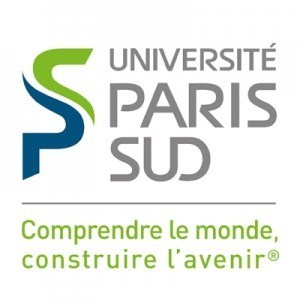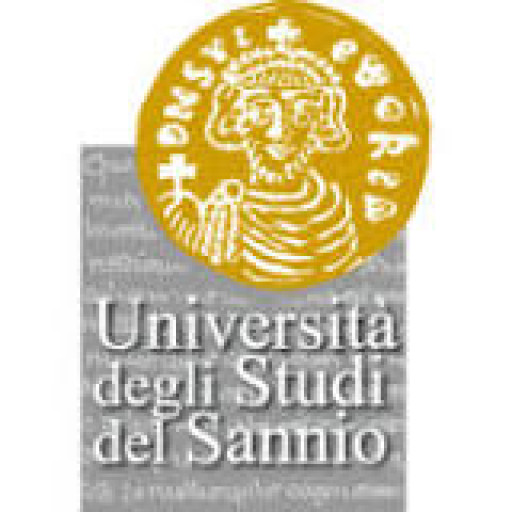Photos of university
The Genetics program at Sorbonne University offers an in-depth exploration of the fundamental mechanisms underlying heredity, genetic variation, and molecular biology. Designed for students passionate about understanding the biological basis of life, this program provides comprehensive training in classical genetics, molecular genetics, genomics, and bioinformatics. Students will engage with cutting-edge research topics, including gene expression regulation, genetic polymorphisms, and genome editing technologies such as CRISPR-Cas9. The curriculum combines theoretical coursework with practical laboratory sessions, enabling students to gain hands-on experience in molecular cloning, DNA sequencing, genetic analysis, and data interpretation. Throughout the program, students will explore the role of genetics in health, agriculture, and environmental sciences, preparing them for careers in research, biotechnology, medicine, and public health. The program emphasizes critical thinking, experimental design, and scientific communication, ensuring graduates are well-equipped to contribute to advances in genetic research and technology. Additionally, students have opportunities to participate in seminars, workshops, and internships at renowned research institutions affiliated with Sorbonne University. The multidisciplinary approach integrates insights from biology, medicine, and computer science, reflecting the evolving landscape of genetics. Graduates will be capable of pursuing doctoral studies or entering the workforce as geneticists, bioinformaticians, medical specialists, or consultants. By combining foundational knowledge with innovative technologies, the Genetics program aims to nurture the next generation of scientists dedicated to understanding and manipulating the genetic code to solve real-world challenges.
Main courses offered by the Department of Biology
At least 18 ECTS have to be taken among these courses
- BIO-M2-E01-S1 Mathematics and programming training
- BIO-M2-E02-S1 High-throughput data analysis for genomics (3 ECTS)
- BIO-M2-E16-S2 Computational analysis of cis-regulatory sequences (3 ECTS)
- BIO-M2-E18-S1 Frontiers in Microbial systems (3 ECTS)
- BIO-M2-E03-S1 Dynamical modelling of cellular regulatory networks (3 ECTS)
- BIO-M2-E05-S1 Cellular ecosystems: from modelling to medecine (3 ECTS)
- BIO-M2-E06-S1 Cellular machineries and regulation of gene expression (3 ECTS)
- BIO-M2-E04-S1 Optical Microscopy : principles and applications in Neurosciences (ex: From single molecule to the dynamics of cell ultrastructures) (6 ECTS)
- BIO-M2-E08-S1 Neurophysiology (12 ECTS)
- BIO-M2-E15-S1 Interdisciplinary tutorials in neuroscience (6 ECTS)
- BIO-M2-E13-S1 Modeling and analysis of neuronal networks, synaptic transmission and single photon response (6 ECTS)
- BIO-M1-S08-S1 Development of the Nervous System (6 ECTS)
- BIO-M1-S05-S1 Evolutionary genetics (6 ECTS) (M1)
- BIO-M1-S04-S1 Genomes & phenotypes (6 ECTS) (M1)
- BIO-M2-E09-S1 Genetic basis of phenotypic variation (3 ECTS)
- BIO-M2-E17-S1 Experimental Evolution (6 ECTS)
- BIO-M1-S07-S1 Biology of Ecological Systems (6 ECTS) (M1)
- BIO-M2-E19-S1 Experimental Ecology (3 ECTS)
- BIO-M2-E10-S1 Functional and evolutionary genomics (3 ECTS)
- BIO-M2-E11-S1 Adaptive Dynamics Modeling (3 ECTS)
- BIO-M2-E12-S1 Structured Population Modeling (6 ECTS)
- BIO-M2-E07-S2 Multidisciplinary approach to plant and animal morphogenesis (6 ECTS)
- BIO-M1D09-S1 Methodology Tutorials in M1 + M2 (optional course: 3 ECTS for DENS or 0 ECTS)
Main courses offered by the Pasteur Institute
- Genome Analysis (12 ECTS)
- Cellular and Molecular Genetics (12 ECTS)
- Mouse Genetics (12 ECTS)
- Protein Biochemistry (12 ECTS)
- Molecular Biology of the Cell (12 ECTS)
- Development and Plasticity of the Nervous System (12 ECTS)
- Multiple Roles of RNAs (6 ECTS)
Main courses offered by the Curie Institute
- Epigenetics (6 ECTS)
- Developmental biology : from stem cells to morphogenesis (6 ECTS)
- Non-Coding Genome (3 ECTS)
Our students are further encouraged to take courses offered by other scientific departments of ENS (Mathematics, Computer Sciences, Physics, Chemistry, Earth Sciences, Cognitive Sciences), or by neighbouring institutions.
- A curriculum vitae, mentioning training courses and detailing your higher education pedigree (subjects and modules).
- A copy of the internet registration form
- An ID photography.
- A letter of application (typewritten), presenting yourself, indicating how you see your professional career, what the graduate program will bring you, and specifying the main courses that you would like to follow.
- A photocopy of the bachelor’s degree (or equivalent) and all undergraduate and postgraduate academic transcripts. Please, supply any available official information regarding your relative ranking (e.g. top 5%) and the number of students in the class.
- Two or three letters of recommendation sent to us directly (preferably by e-mail) by professors or researchers who know you well.
Send the complete file at the latest by (March 31st or June 1st) by email at: imalisM2@biologie.ens.fr
or by mail
The financing of the Genetics degree program at Sorbonne University primarily depends on the status of the student and the chosen mode of study. For domestic and international students enrolled in diploma courses, tuition fees are established according to the university's annual fee schedule. In general, these fees cover access to lectures, laboratories, and academic resources necessary for the comprehensive study of genetics and related biomedical sciences. International students may be subject to different fee structures, often reflecting higher tuition rates, which are specified annually by Sorbonne University.
Students can finance their studies through a variety of sources. French and European Union students often have access to government financial aid programs, including scholarships, grants, and student loans. France offers scholarships based on academic merit, socio-economic criteria, or specific regional programs, which can significantly reduce the financial burden. Additionally, many students fund their studies through personal savings, family support, or part-time employment, although the latter may be limited by the demanding nature of the program.
Sorbonne University also provides information and support for students seeking external funding opportunities. International students are encouraged to explore scholarships offered by their home governments, private foundations, or the French government’s Eiffel Scholarships program, which aims to attract talented students to French higher education institutions. Moreover, specific grants and fellowships may be available for research projects or thesis work within the genetics program, especially for students engaged in advanced research or international collaboration.
Students pursuing research-intensive tracks or applied genetics may also have opportunities for funded internships or assistantships. These positions can provide stipends that help cover living expenses and reduce overall cost. Some students may participate in collaborative projects with healthcare institutions, biotech companies, or research laboratories, which often include financial compensation or subsidies.
International students should also consider the total cost of living in Paris, including accommodation, transportation, insurance, and daily expenses. While tuition fees form a part of the academic investment, living costs can constitute a significant part of the overall financing requirements. Sorbonne University offers guidance on budget planning and recommended financial preparations to prospective students.
In sum, the financing of the Genetics degree at Sorbonne University involves a combination of university fees, external scholarships, personal resources, and possibly funded work opportunities. Prospective students are advised to consult the university’s dedicated financial aid resources and scholarship portals well in advance to plan their finances effectively and ensure all funding avenues are explored.
Genetics at Sorbonne University is a comprehensive undergraduate program designed to provide students with a deep understanding of the fundamental principles of genetics, molecular biology, and genomics. The curriculum integrates theoretical knowledge with practical laboratory skills, preparing students for careers in research, healthcare, biotechnology, and related fields. Throughout the program, students explore various aspects of genetics, including gene structure and function, inheritance patterns, genetic variation, and the molecular mechanisms underlying genetic disorders. They also gain insights into modern techniques such as DNA sequencing, genetic engineering, and bioinformatics, which are essential tools in contemporary biological research.
The program emphasizes critical thinking and experimental skills, encouraging students to participate in research projects and laboratory work that mimic real-world scientific challenges. Students learn to analyze genetic data, interpret experimental results, and communicate complex scientific concepts effectively. Additionally, the program offers modules on ethical, legal, and social issues related to genetics, ensuring that graduates are not only technically proficient but also socially responsible practitioners.
Students have access to state-of-the-art laboratories, biological collections, and digital resources at Sorbonne University, fostering an environment of innovation and discovery. The program is often complemented by lectures from leading experts in the field and opportunities for internships with research institutions and biotechnology companies. Graduates of the Genetics program are well-equipped to pursue advanced studies at the master's and doctoral levels, or to enter professional roles in genetic counseling, medical research, pharmaceuticals, and education.
Furthermore, the program is designed to reflect the interdisciplinary nature of genetics, integrating aspects of biochemistry, cell biology, and medicine. This ensures that students develop a rounded perspective on how genetics impacts various biological sciences and human health. Sorbonne University's reputation for academic excellence and its emphasis on research-driven teaching make it an ideal place for students passionate about genetics to develop their knowledge and skills, contributing to scientific advancement and societal well-being.










